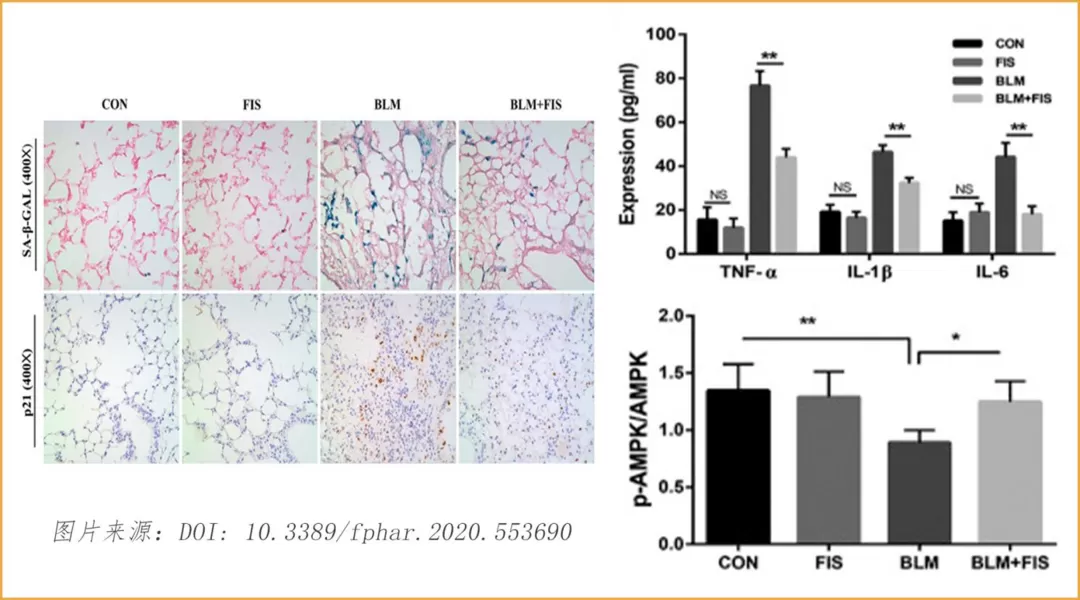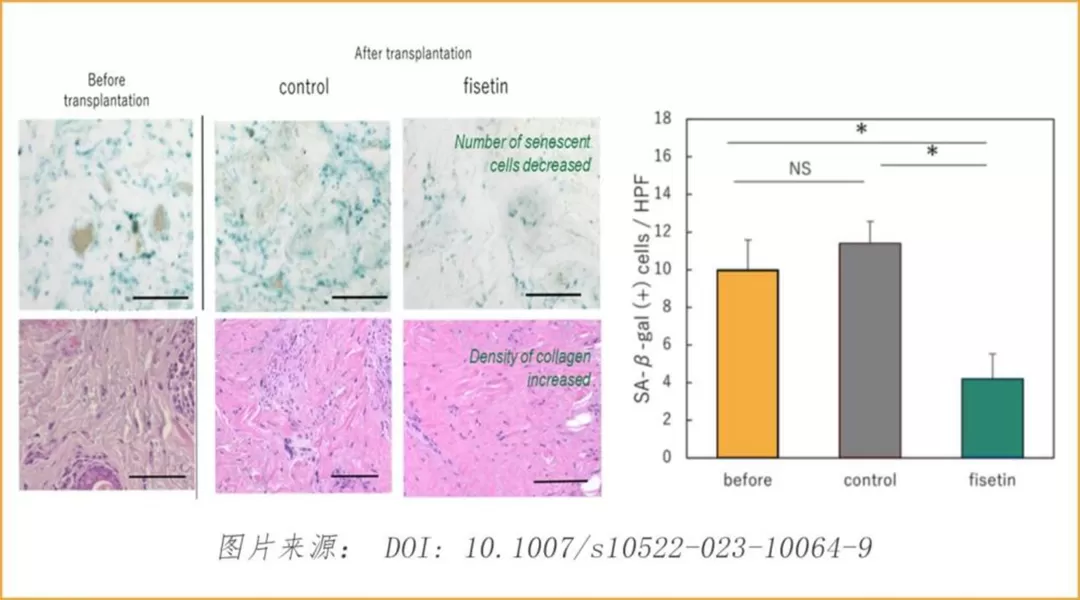In recent years, the field of anti-aging has seen a surge in new scientific research and emerging compounds. Fisetin, a natural polyphenol, has garnered significant attention due to its unique ability to regulate cellular homeostasis through multiple targets. This has positioned it as a promising “rising star” in the realm of anti-aging.
Fisetin, also known as fisetin, is a flavonol derived from plants. It is a common plant pigment found abundantly in strawberries, apples, onions, and cucumbers. Through animal studies and some clinical trials, scientists have proposed important mechanisms by which fisetin may extend lifespan.
In 2020, a study conducted by West China Hospital in China found that fisetin significantly reduced senescent cells in the alveolar epithelium of mice through the AMPK/NF-κB pathway. This reduction in senescent cells led to decreased expression of pro-inflammatory cytokines and effectively alleviated the degree of pulmonary fibrosis. In another study focusing on pulmonary artery endothelial cells, fisetin was shown to significantly inhibit the expression of the senescence protein P21 and reduce oxidative stress levels, thereby decreasing the number of senescent cells.

Substances that can eliminate senescent cells are known as “senolytic agents.” Fisetin has been extensively studied and proven to be a potent senolytic agent. In a comparative study of senolytic activity, fisetin demonstrated a clear advantage, with its senolytic activity reaching over 68%, far surpassing quercetin, resveratrol, and curcumin. Remarkably, fisetin selectively cleared senescent cells without affecting healthy cells.
Currently, the potential of fisetin to enhance immune function has been preliminarily validated in clinical settings. In a large clinical study published by the Mayo Clinic in 2024, 536 long COVID patients received various interventions, with 44 of them using fisetin. The results showed that 64% (28/44) of the users reported significant improvements in symptoms such as fatigue, muscle pain, and orthostatic hypotension. This suggests that fisetin may help support normal immune system function and promote recovery.
By regulating the number of senescent cells and immune levels, the benefits of fisetin extend beyond cellular aging, offering systemic health improvements.
1. Significant Improvement in Skin Aging: The skin is the body’s largest organ and plays a crucial protective role. Both external environmental factors and internal changes can induce skin aging. Kento et al. found that fisetin selectively cleared about 66% of senescent dermal fibroblasts and inhibited SASP secretion, thereby slowing down the skin aging process. Additionally, fisetin increased collagen density by 41.2%, contributing to skin rejuvenation.

2.Inhibition of UVB-Induced Expression: Fisetin can help reduce the formation of skin wrinkles and enhance skin layers by decreasing the number of matrix metalloproteinases (MMPs), which break down the extracellular matrix surrounding cells. The extracellular matrix includes collagen, elastin, hyaluronic acid, glycosaminoglycans (GAGs), and many other cell-binding molecules. Therefore, they can tighten tissues such as skin and organs.
3.Improvement in Cognitive Decline: Another intriguing aspect of fisetin is its ability to reduce cognitive aging in mice. A study found that aged mice showed improved performance in maze navigation and object recognition after being administered fisetin. This indicates enhanced cognition and memory in older mice. Related research suggests that fisetin may extend both median and maximum lifespan in mice, even when administered later in life (equivalent to 50 or 60 years in humans). Moreover, in animal models of early-onset Alzheimer’s disease, fisetin has been shown to prevent the development of cognitive and memory impairments.
4.Antioxidant Properties: Fisetin possesses strong antioxidant properties that help neutralize free radicals and reduce oxidative stress damage to cells. Fisetin exerts its effective antioxidant activity through various mechanisms, such as enhancing both enzymatic and non-enzymatic intracellular antioxidants. Additionally, preclinical models indicate that fisetin can increase intracellular glutathione levels, a crucial free radical scavenger for cell survival.
To date, fisetin has shown great promise in improving health and reversing aging to extend lifespan. Notably, the first unique medical food containing fisetin, “GlaucoCetin,” has been introduced to the market at a price of $79.95. It aims to protect the mitochondrial function of optic nerve cells in glaucoma patients. Therefore, fisetin can be used as a pharmaceutical ingredient, oral dietary supplement, and medical food, benefiting human health. In the future, fisetin, this plant-derived molecule, may become an effective choice for anti-aging.